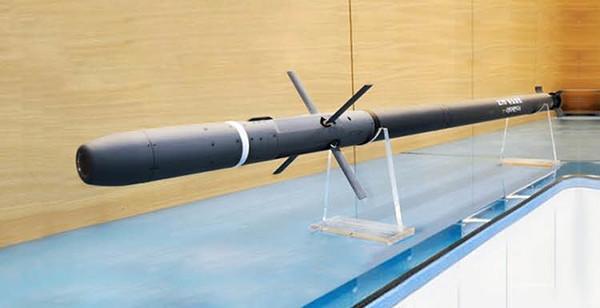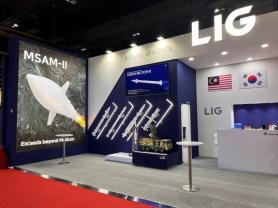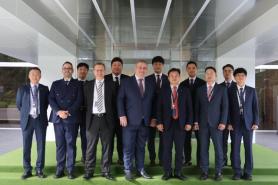
SEOUL -- LIG Nex 1, a prominent South Korean defense contractor, is expediting discussions with the United States government to finalize an export deal for the "Bigung" 70mm laser-guided anti-ship rocket system. While South Korean companies have previously supplied weapon parts and components to the U.S. government, the adoption of Bigung would mark the first time a South Korean full weaponry system is integrated into Washington's arsenal.
The impetus for this development traces back to the year 2000 when al-Qaeda orchestrated a devastating attack on the USS Cole, a U.S. Navy guided-missile destroyer stationed in Yemen's Arden Harbor. Suicide bombers on a small fiberglass boat laden with plastic explosives killed 17 U.S. Navy sailors and injured 37 others. This incident, the deadliest assault on a U.S. Navy vessel since 1987, underscored the urgent need for cost-effective, agile missiles capable of neutralizing small, fast-moving ships.
Traditionally, U.S. warships have relied on long-range anti-ship missiles like the renowned "Harpoon" sub-sonic cruise missiles, each costing approximately $3 million per unit, or "Hellfire" missiles, priced at about $150,000 per unit, with a maximum range of approximately eight kilometers.
Bigung, however, emerges as a viable solution, offering a 700mm low-cost guided imaging rocket (LOGIR) at a fraction of the cost, priced at around 40 million won ($30,000), and boasting a similar maximum range of about eight kilometers. Positioned as a niche solution tailored to the demand for affordable anti-ship missiles suitable for agile vessels, Bigung targets a specific niche market segment.
An official from LIG Nex 1, speaking on condition of anonymity to Aju Business Daily on March 12, revealed that LIG Group leader Koo Bon-sang is scheduled to undertake a business trip to the U.S. to engage in export contract negotiations for Bigung missiles. Following the successful completion of comparative testing by the Pentagon in April 2020, LIG Nex 1 has participated in four U.S. government-led foreign comparative testing (FCT) exercises for Bigung missiles since 2023.
With two remaining FCTs slated for 2024, LIG Nex 1 anticipates that if the Bigung missiles meet the stringent standards set by the U.S. Navy, they will receive approval to proceed to the final negotiation phase with the Pentagon. South Korea's defense industry predicts that if Bigung is adopted by the U.S., it is likely for LIG Nex 1 to continue its talks with Washington on exports of the Shingung short-rage man-portable air defense system (KP-SAM).
Copyright ⓒ Aju Press All rights reserved.




